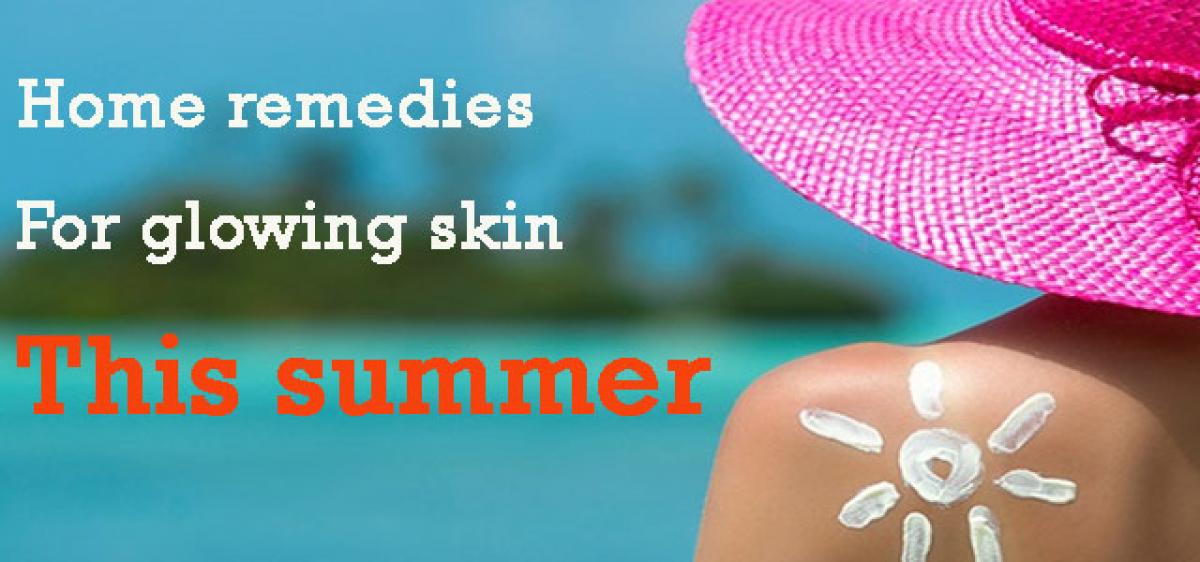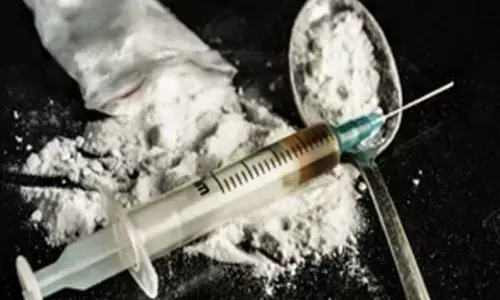Protect your skin from sun

Among the organs of the body, the skin is one of the first to bear the brunt of summer sun and skin irritants, which lead to problems like suntan, sunburn, dark patches, rash, pimples, etc. Exposure to the sun leads to suntan and sunburn and it can cause redness and allergies, with itching and dryness of the skin. Sun-exposure can also lead to dark pigmented spots or patches. The sun’s rays are mo
Among the organs of the body, the skin is one of the first to bear the brunt of summer sun and skin irritants, which lead to problems like suntan, sunburn, dark patches, rash, pimples, etc. Exposure to the sun leads to suntan and sunburn and it can cause redness and allergies, with itching and dryness of the skin. Sun-exposure can also lead to dark pigmented spots or patches. The sun’s rays are most intense between the hours of 12 noon and 2:00 pm.
If one is swimming in an open pool, exposure to the sun becomes a problem. Reflective surfaces like water actually cause more sun damage. The skin becomes tanned, which is a normal protective response of the skin. Sun-exposure can also cause dryness of the skin, while chlorine and other chemicals in the water deplete moisture. Chlorine can sometimes cause rashy conditions.
The answer is to protect the skin by applying a broad-spectrum sunscreen, which provides protection from both UV-A and UV-B rays of the sun. For oily skin, look for an “oil-free” product, or apply a sunscreen gel or light lotion. Add a drop of water to it, to provide a lighter coverage.
It is essential to apply sunscreen, not only on the face, but also on all exposed areas. The back of the neck and arms are extremely vulnerable to sun damage too. The sunscreen should be applied about 20 minutes before sun-exposure. If you happen to be in the sun for more than an hour, re-apply the sunscreen.
A sunscreen with SPF 20 is adequate for most skins, but if the skin is more sensitive and tends to burn easily, one should use a sunscreen with a higher SPF.
Remember to apply sunscreen while swimming, holidaying by the sea or in the hills. Reflective surfaces, like water and snow actually increase the effects of UV rays.
Oily skin is prone to pimples. Cleansing is most important, especially during summer, when an oily and sweaty skin attracts more dirt and pollutants. Cleansing is more important. Use a mild cleanser or face wash, which is meant for normal to oily skin and contains ingredients like tulsi and neem. Rinse the face well with water.
Apply an astringent lotion or skin tonic, using cotton wool. If there are no pimples, use a facial scrub once or twice a week. In fact, facial scrubs also help to lighten pigmented patches, apart from removing oil from the pores. For pimple prone skin, avoid creams and moisturisers. Use an oil-free day cream.
Acne and pimples mean congested skin and congested system. Therefore, one should have a diet that helps to cleanse the system and keep it flushed of toxins and wastes. The diet should be high in fibre and rich in vitamins and minerals.
The diet should include fresh fruits, raw salads, sprouts, wholegrains, yogurt, fresh fruit juices, clear soups, lassi. A low fat diet would help. One should drink 6 to 8 glasses of water daily. Add the juice of a lemon to a glass of water and have it first thing in the morning. Avoid fried foods and too many chocolates and sweets.
Here are a few home remedies that will help you tackle pigmentation:
Applying fresh Aloe Vera gel to the burnt area soothes and heals the skin and helps it to recover faster. The nutritive mineral zinc present in this healing plant is anti-inflammatory.
For a soothing effect, place chilled cucumber slices on the burn or dab on some cucumber juice with the help of a cotton ball. You can even grate the chilled cucumber and apply it on the sunburns to reduce the inflammation.
Mix ground almonds with curd and apply on the face. Rub gently with small circular movement, especially on dark patches. Wash off with water.
Add a pinch of turmeric to curd or buttermilk and apply on the face daily. Wash it off after 15 minutes with plenty of water.
Here are some home remedies for eruptive conditions:
Sandalwood paste can be applied on the eruptive conditions. Or, mix sandalwood with a little rose water and apply on the entire area. Rose water is a natural coolant. Wash off with plain water after 20 to 30 minutes.
Sandalwood essential oil can also be used. Add 2 to 3 drops sandalwood essential oil to 50 ml rose water and apply on the area.
Or, add 2 drops of Tea Tree Oil to two tablespoons of water or rose water. Apply this on rashy and eruptive conditions.
Simmer a handful of neem leaves on a very low fire in 4 cups of water for one hour. Leave it overnight. Next morning, strain the water and make a paste of the leaves.
Apply it on inflamed and rashy areas. The water can be used for rinsing the area. Neem contains organic sulphur compounds, with versatile healing actions that are of particular benefit to the skin.
Woman injured in stabbing attack in Tokyo, suspect at large
Bengal cop booked for murder over mysterious death of woman home guard, SIT to probe case
Staffer recalls horror of 7-kg gold robbery by armed gang in Karnataka’s Hunsur
25-Year-Old Airline Cabin Crew Member Dies At Gurugram Party; Police Begin Investigation















